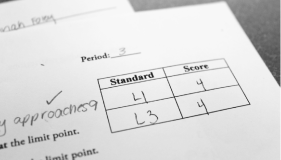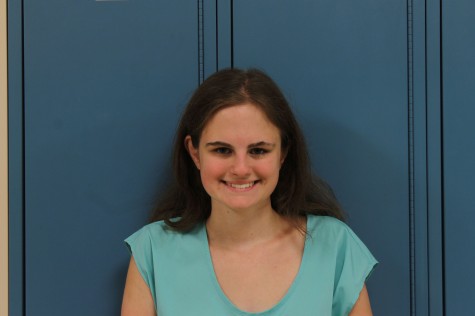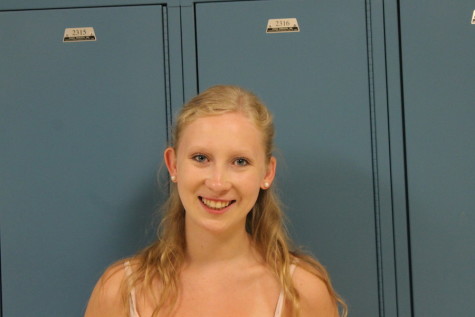
Usually, average is the key word with grading. Quarterly homework is averaged. Semester exams are averaged. Final grades are averaged. A student’s mean among all studied units is the ultimate score.
However, this scenario is no longer universal. According to Mathematics Department Chair Frank Corbo, five Staples math teachers in 15 classes (12% of the department) are piloting Standards Based Grading (SBG), a nationally known, alternative scoring system that differs significantly from traditional grading. A number of science classes are also using this grading method; several science classes actually initiated the new grading system a year ago
Nathaniel Dewey, a physics teacher who started using SBG with his classes last year and was responsible for introducing it to the math department, said the system “really makes you rethink what grades mean.”
The system represents a big change for teachers and students, Corbo said. “We continue to innovate. We continue to improve our instruction,” Corbo said. “If you stand still, you’re moving backwards.”
Standards Based Grading, in a nutshell, means that teachers set out, for a specific course, a number of skills for students to achieve by the end of the year; these are called standards. As the year proceeds, students have multiple opportunities to be tested on the various standards: if a student hasn’t mastered a skill early on, the student will be retested repeatedly through the year, Corbo said.
“It seems like we focus on concepts a lot more than just correcting problems,” explained Matt Walton ’14, a SBG student. In fact, in most SBG classes, homework and participation are not factored into a grade. Instead, the assignments are intended to help students master skills.
In addition, students are responsible for concepts previously learned: all learning is fair game for any assessment later in the year. All learning is cumulative, Corbo explained.
A grade at the end of the quarter is essentially a progress report, based on mastery of standards, because it is not averaged with the second quarter grade: it tells students how they’re doing.
The second quarter grade supersedes the first quarter grade, the third quarter grade supersedes the second quarter, and so on.
“Every assessment is a formative assessment to let students know what they can do and what they are still having trouble with,” Corbo said. “At the end of the year, time’s up.”
Students and parents interviewed for the story are divided about the new system. Some felt it really refocused them on learning, rather than the grade.
“My immediate thoughts were, hey, looks like I don’t have to do homework anymore,” said Evan Gilland ’16. Later, though, he said he found he had to do the homework to score well on assessments. “It really affects how well you know the subject.”
Students also appreciated their ability to retest if they do poorly on initial assessments. “Even if you bomb a test the first time, it doesn’t matter,” said Mikaela O’Kelly ’15, whose math class does SBG.
However, there are questions about SBG as well.
A particular concern is that since the same standard can appear on multiple cumulative assessments throughout the year, students are expected to retain their proficiency on multiple standards.
“Kids don’t like how they can’t forget something after a test,” said Corbo. “[They] need to continue to show [their] competence.”
Others expressed concern that grades are based solely on tests.
“My sense is if you don’t encourage and incentivize class participation and homework, students are going to start slacking off,” Ravi Chachra, a parent of two 10th graders, said.
And students who work hard said they’d like to see more than tests factored into their grade. Sarah Rakin ’14 said she misses the benefits of participation and homework on her grades. “I think it’s a good idea in theory, but doesn’t work as well practically,” Rakin said.
In response, SBG math teacher Anthony Forgette explained that in fact what attracted him to the system was how it benefits not the student who slacks off, but the student who works hard to understand the concept.















































